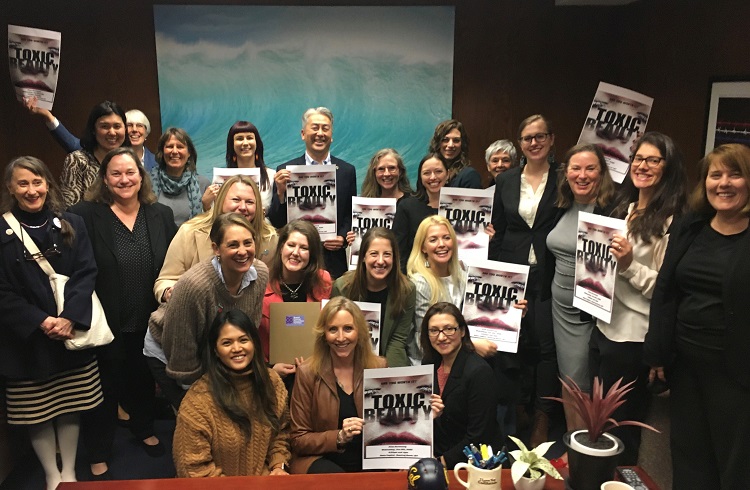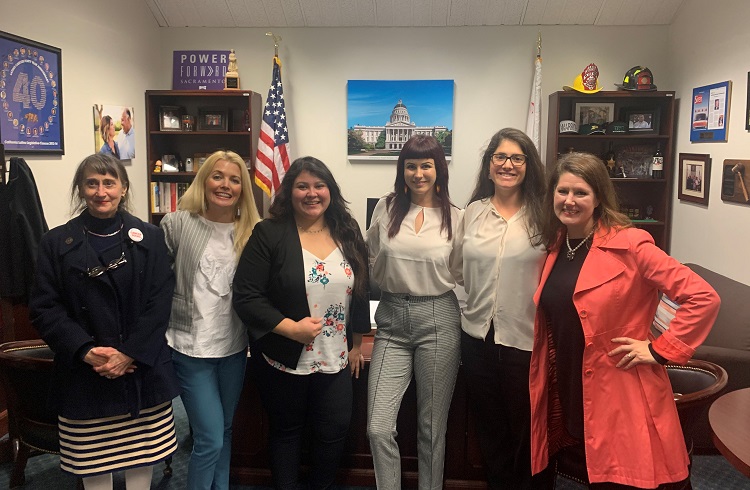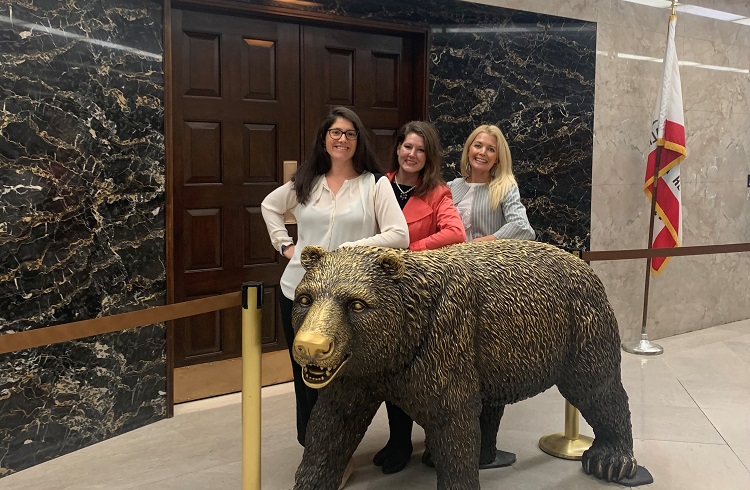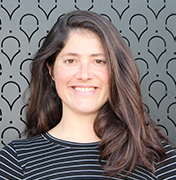By BCPP Digital Advocacy Coordinator Kathryn Bache
On January 8, I joined 24 women in Sacramento to ask members of the California Assembly to support the California Toxic Free Cosmetic’s Act (AB 495). This bill would ban 13 of the most toxic chemicals currently being used in cosmetics in America; all of these chemicals are banned in the EU.

These were breast cancer survivors, advocates, and clean beauty company representatives; some woman were all three. We all came to the capital interested in sharing our stories about why the Toxic Free Cosmetics Act was so important to us:
Breast cancer survivors want to limit their exposure to carcinogens because they are especially at risk of a reoccurrence.
Advocates like us at BCPP, along with our fellow co-sponsors of AB 495, EWG and CalPIRG, have heard from our supporters that removing toxic chemicals from personal care products is a top concern.
Clean beauty companies know that there is a better way to formulate personal care and beauty products that is non-toxic, and you can make money doing it.
I also have a more personal reason to advocate for the California Toxic Free Cosmetics Act. I am a mother to two small children. I work full time. I don’t feel like I should have to spend extra energy reading the back of a label to see if there are chemicals in my cosmetics products that scientists know cause cancer or disrupt our hormone systems.

Why is it up to me to look for formaldehyde and formaldehyde releasers on the back of a baby shampoo bottle when it can go by as many of 15 different names?[1] Why was most mercury use banned in 1974 but still allowed in my eye cream (a necessary luxury for a mom with a lot of interrupted sleep)?[2] How can it be that we have a national conversation about PFAS contamination in our water supply and cosmetics companies are still intentionally adding PFAS to their mascara and eye liner?
I came to work for BCPP when I was pregnant with my second child. I learned to read labels and avoid parabens and phthalates. I had to throw away some wonderful gifts from friends and family because they included ingredients that would harm my new baby girl or myself. The more I train myself to shop better, the angrier I become that so much of my mental space is taken up by this information.
If the science is clear, as it is with all 13 chemicals banned by the Toxic Free Cosmetics Act, these chemicals should be banned from cosmetics. Banning cancer causing chemicals and hormone disruptors from cosmetics would free me to buy the product on the shelf with a giraffe on it (my son’s favorite animal) or choose maybe the cheaper of the two toothpastes without having to check what lurks on the back label.

I told all this to the staffers and legislators in Sacramento who met us on our lobby day. Each woman told her story in January about why the Toxic Free Cosmetics Act is necessary to make the lives of everyone in California safer. Even though this bill didn’t make it out of Assembly Health Committee at the end of January, we will continue to advocate for banning these chemicals in cosmetics. We look forward to reintroducing the bill next month.
Everyone needs to hear the story that these chemicals are allowed in cosmetics, they are harmful to our health, and we can take them out if we pass the California Toxic Free Cosmetics Act.
[1] https://www.cancer.org/cancer/cancer-causes/formaldehyde.html
[2] https://childrenshealthdefense.org/known-culprits/mercury/mercury-facts/mercury-in-cosmetics/

